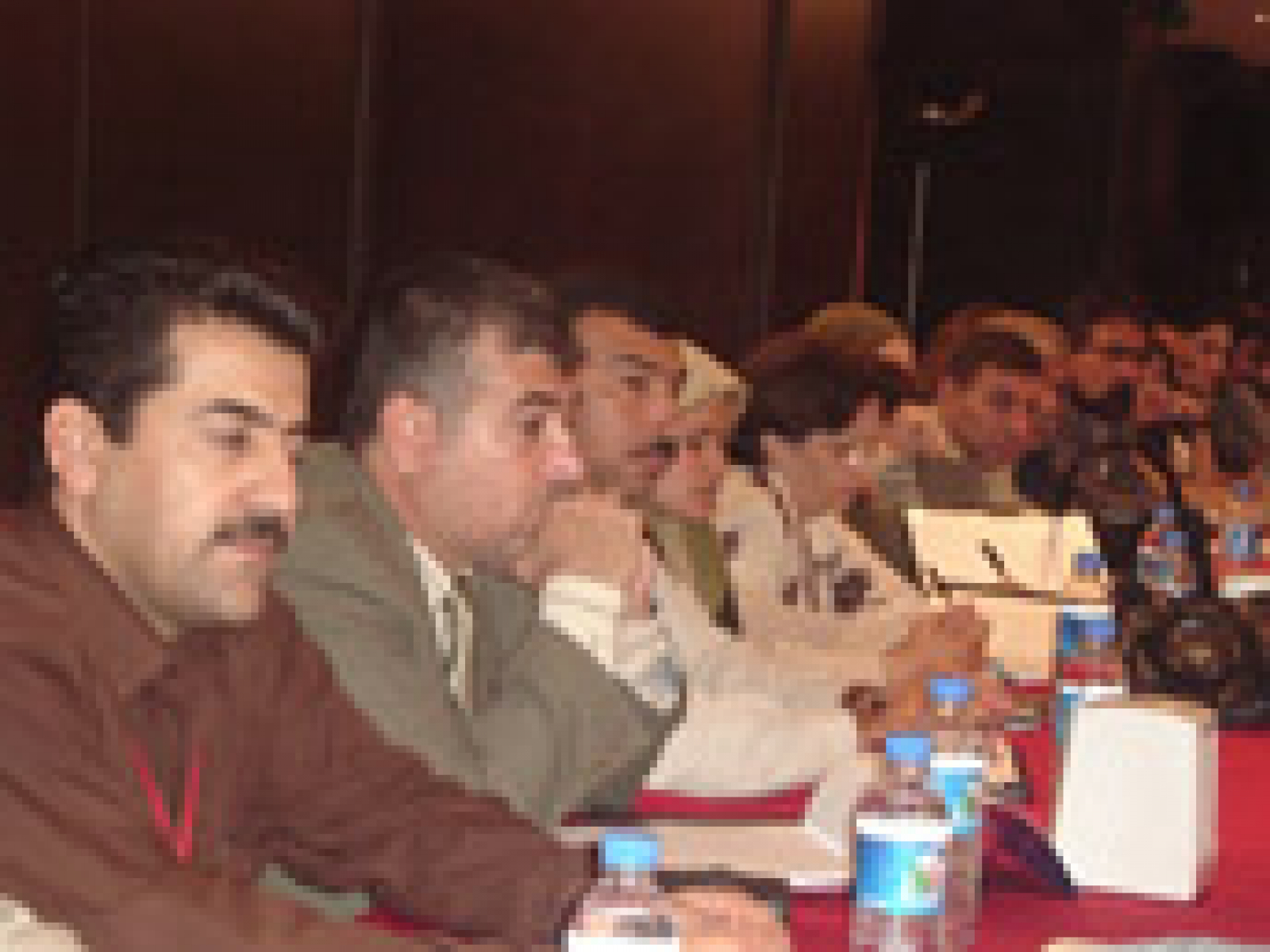
SHARE
Adversarial parties in Iraq recently achieved a major breakthrough – a negotiated end to the year-long Sunni bloc boycott of the Kirkuk Council. This significant development followed a multi-party, multi-sectarian, multi-ethnic symposium organized by NDI in late October.
Moderated by Lord John Alderdice, a key figure in the Northern Ireland peace negotiations and former speaker of the Northern Ireland Assembly, the Kirkuk forum brought disparate factions together to discuss common interests and possible solutions to the region’s strife. The forum was held in the midst of deliberations over Article 140 of the Iraqi constitution – a constitutional mandate that outlines a three-step process to determine whether Kirkuk will remain within Iraq’s boundaries or be returned to the Kurdistan region. Organizers hope the forum will lead to larger discussions on the future status of Kirkuk, with representation from all groups affected by its uncertain status.
The situation in this contested governorate is a microcosm of the broader state of affairs in Iraq, encompassing all of the major challenges that impact the country as a whole. Specifically, the disputed, oil-rich city of Kirkuk — historically claimed by both the Kurds and Turkmen — will either become part of the semi-autonomous Kurdistan region or part of greater Iraq. Thus, determining the status of the region is of paramount importance as Iraq’s democratic transition progresses.
NDI brought together the Iraqi factions, which previously had refused to sit at the same table, let alone negotiate with one another. As the culmination of a series of negotiation and conflict resolution training seminars conducted throughout the year, participants were able to apply newly-acquired skills to practical exercises focusing on methods for community problem solving. NDI worked separately with members of civil society organizations and political parties to discuss the policy issues they were most concerned about, defining their interests and potential solutions to the identified challenges.
Male and female participants of different constituencies, ethnicities, religions, generations and interest groups discussed security, economic development, public administration and other issues affecting the disputed governorate. They agreed that all major problems flowed from a common set of circumstances including corruption, the poor security environment, foreign interference in domestic affairs, the need to modernize government and economic infrastructure, the lack of trust among Kirkuk’s various ethnic and religious groups, and the delayed implementation of Article 140.
Beyond providing guidance and facilitation throughout the conference, Lord Alderdice offered his continued support for the on-going process. He cited Northern Ireland as a region that was able to address historic and religious tensions through a process of negotiation, emphasizing the importance of civility, trust, respect and achieving a “sufficient consensus.” He also expressed optimism that the group would begin to tackle some of the challenges it identified, suggesting that the forum could play an important role in Kirkuk’s future.
“As a member of the supporting and assisting team for the Arab negotiation team in Kirkuk, I was conveying NDI’s instructions and the skills I learned…to my colleagues and urged them to apply them in their negotiation for returning to the Kirkuk Council. … Only a few members of both the Arabic and Kurdish teams for Kirkuk Council negotiations were members of NDI’s program, but their influence and impact on the negotiation outcome was undeniable. I consider this a great indicator for the success of the program and the necessity for extending it as well.”
– Abdulrahim Atya Alewi
Kirkuk Iraqi Front (previously the Arab Consultative Council)
“My party believes in us being able to make changes; otherwise I would not participate in the NDI training and in this forum.”
– Forum participant
–
Published on February 12, 2008


